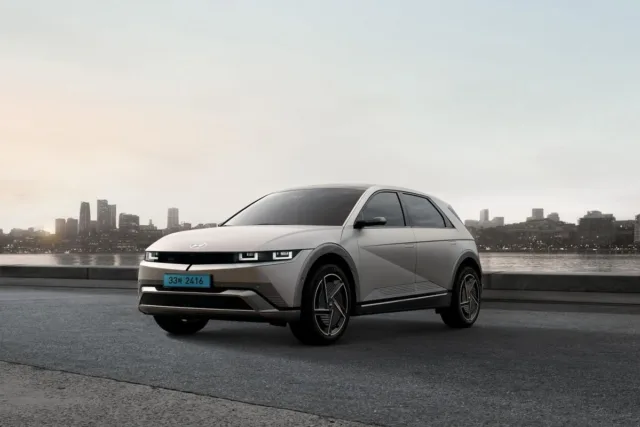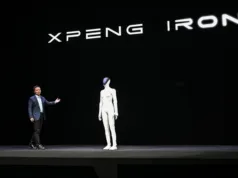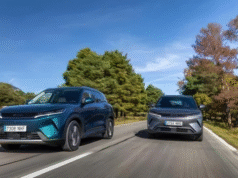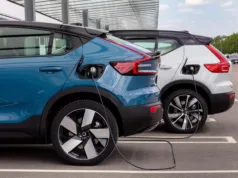
Hyundai Motor’s flagship IONIQ 5 EV / Courtesy of Hyundai Motor
Local electric vehicle (EV) makers are facing increasing threats from their Chinese and European peers, as they are moving to expand further into the Korean market next year, as the government is set to sharply increase subsidies for all-electric cars.
The government recently decided to allocate 936 billion won ($634 million) for EV subsidies in 2026, up 20 percent from the previous year. The government recently decided to allocate 936 billion won ($634 million) for EV subsidies in 2026, up 20 percent from the previous year. The significant increase in the budget reflects the government’s commitment to supporting the growth of the local EV industry and sustainable mobility.
Overseas carmakers, particularly from China and Europe, are looking to capitalize on opportunities by expanding their sales lineups and capturing a larger market share at this early stage of the EV industry here.
BYD is rapidly establishing its presence in Korea, rising to become the nation’s fourth-largest imported EV maker by sales. The Chinese EV maker launched its Korean operations less than a year ago, in January.
According to data from the Korea Automobile Importers & Distributors Association, BYD Korea’s cumulative EV sales reached 3,791 units between January and October, ranking it just behind Tesla, BMW and Audi.
The Chinese firm outsold Mercedes-Benz, Volvo, and Porsche in EV sales, challenging the once-common belief that Chinese carmakers could not succeed in Korea due to local customers’ preference for high-end imported vehicles.
The rapid rise of BYD Korea poses a threat not only to foreign luxury carmakers but also to local firms such as Hyundai Motor, Kia and KG Mobility, as domestic automakers struggle to match the Chinese firm’s pricing.
Zeekr, a premium EV brand from China’s Geely Group, recently completed the legal procedures to operate in Korea. The carmaker is scheduled to launch its EV sales here in the first quarter of next year.

People try Xpeng’s electric vehicles at its headquarters in Guangzhou in southern China’s Guangdong province, Nov. 5. AFP-Yonhap
In June, Xpeng, a Chinese EV maker, established its Korean corporation with plans to start EV sales sometime in 2026.
Given the noteworthy success of BYD Korea, industry officials argue that the arrival of the two other Chinese brands will pose increasing threats to domestic players.
“Korean carmakers’ long-held position — represented by price competitiveness — is being threatened by Chinese rivals, as evidenced by the robust sales of BYD Korea even in the first year of its operation here,” an official from the auto industry said.
European luxury EV makers are also seeking to expand their presence in the Korean market. Porsche Korea plans to meet strong local demand for SUVs by launching the electric version of its popular Cayenne — the Cayenne Electric — in the latter half of next year.

Mercedes-Benz Group Chairman Ola Kallenius introduces the carmaker’s new all-electric models during a press conference on Yeongjong Island in Incheon, Nov. 14. From left are the all-new electric CLA sedan and the all-new electric GLC SUV. Yonhap
Mercedes-Benz Korea recently announced plans to launch two strategic EV models — the all-new electric GLC SUV and the all-new CLA sedan — next year.
Volvo Car Korea will also step up competition with its flagship electric SUV, the EX90, which is set to debut in the first quarter of 2026. The automaker plans to capture additional EV demand with the launch of its all-electric ES90 sedan in the second quarter.
Local automakers are preparing to respond to intensifying EV competition with new flagship vehicle launches. Genesis, the luxury division of Hyundai Motor Group, will debut its full-size flagship electric SUV, the GV90, in the first half of next year.








